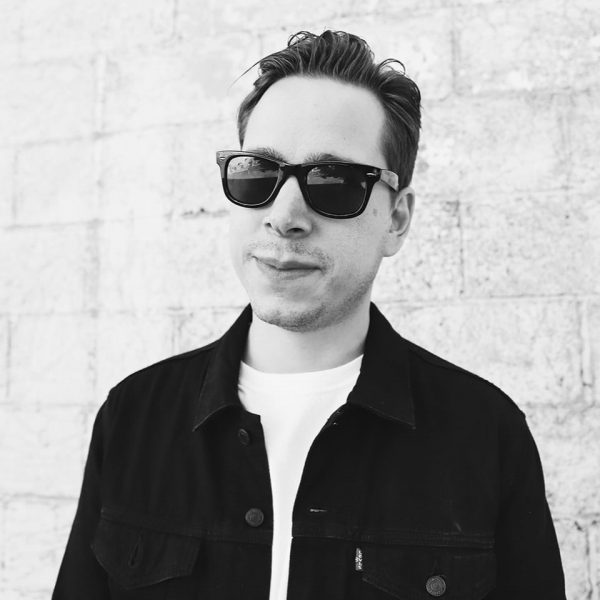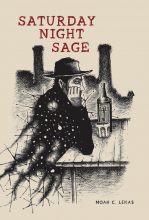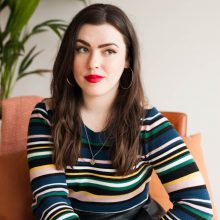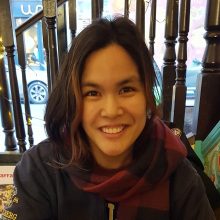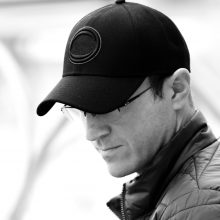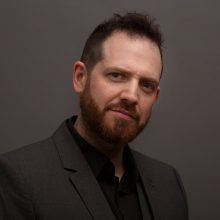Saturday Night Sage by Noah C. Lekas
What led you into writing?
It started with having something to say. The idea of writing as an occupation came much later. I was enamored with the arts but writing quickly proved to be my most effective means of communication and expression.
How does a typical day look?
Every morning the alarm clock plays Motohead at 6am. I get up, get my daughter ready for school and out the door by 7:15am. Then I have breakfast with my wife and son, exercise and start my work day around 9:30am. Depending on the day that can mean working at home, taking meetings or working with my business partner at Hero & Outlaw – we provide narrative strategy for thought leaders, industry influencers and brands. Either way, I spend some, if not most of every day writing. I do my best to shut down by 5pm so that we can have dinner as a family, and I can tuck my kids into bed. These days, I fall asleep embarrassingly early.
In what ways do your characters test your abilities?
In Saturday Night Sage specifically, the characters test the limits of my philosophical and theological paradigms. They push beyond the borders and into untamed space with resolute force. These kinds of characters are always “all-in”, they ask the biggest questions and play for the highest stakes. Their heightened existence requires you to sort of jump into that headspace as a writer – it’s not always a great day to peel your toes off the side of the cliff.
What’s your setup?

My wife and I share a home office. She is a photographer and graphic designer – so she has her setup and I have mine. I use a laptop and notebooks. I write on the computer but take notes by hand. It’s the first time we’ve had a space dedicated to work. It really makes a big difference.
What lasting effects have your favourite authors had on your writing and style?
It’s hard to say if we become more like the people we read or if we find people to read that we’re already like. At the very least writers like Robert M. Pirsig, Jack Kerouac, Herman Hesse, William S. Burroughs, Bob Dylan, Patti Smith and Bob Kaufman showed me the ongoing necessity that certain types of writing have in life. Art gives us permission to reach beyond our own circumstance and be our true selves – to own our perspective, and my favorite authors certainly had that effect on me.
What do you do for inspiration?
The greatest inspiration for me is quiet – sometimes that’s driving around, walking aimlessly, going for a run or just sitting. The older I get, the more acutely aware I am of the effects of noise pollution and not having any real down time. For me, absorbing content becomes taxing. I usually find quiet more inspiring.
What repeating themes do you find yourself pulling into your stories?
I write about a lot of rogue personalities and outsider characters that are seeking. They are usually outlaw personalities lost in a mystic pursuit, and I pull as much from my own life as I can.
How do you wind down?
A good day ends with a cup of Holy Basil or Mint tea and a book on the couch next to my wife.
What sort of challenges do you regularly overcome while world-building?
So much of my writing is grounded in experience that the regular challenge is how accurate or authentic should things be. With Saturday Night Sage it was a piece by piece decision on how much the character or the setting should push the narrative forward. I would imagine for most writers one of the main challenges of “world-building” is deciding how much narrative weight to rest on that world.
What’s the most useful advice you could give to an aspiring author?
As my friend Donald Groscost says, “The greatest reward is afforded by doing the work itself.” Being a writer is writing. As a writer, the reward of your “success” will be getting to do more writing. So be honest with yourself about what you’re working towards and how much you want the work of it. If you have the compulsion, the unquenchable need to express and writing is your means than I’d just say, keep your goals sensible, dig your heels in and don’t let anyone stop you.
Tell us about the book you’re promoting.
Saturday Night Sage (Blind Owl ’19) is a collection of narrative poems about mysticism and menial labor. The book explores the repetitive relationship between religious devotion and blue-collar labor. It follows a forlorn factory worker who leaves their job in the Midwest to look for god. The cover art was draw by Alan Forbes and a series of mini films were made to accompany the book in collaboration with a variety of directors and musicians.
👋 Hi! I run Author Interviews
As a new writer I found myself itching to contribute to a thriving, creative community, so I made Author Interviews and I've met loads of wonderful people in the process. You can buy my debut fantasy RINGLANDER: THE PATH AND THE WAY from Amazon.
